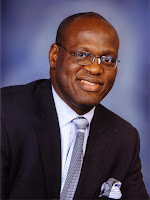As I began to watch "Faith School Menace?", the documentary created and presented by Professor Richard Dawkins and broadcast on More4 on Wednesday, on 4oD, I was preparing myself for an hour of vitriol, pure polemic and poor arguments.
And, as much as I hate to admit it, I was wrong.
Professor Dawkins largely made arguments with which I personally do agree. I do agree that it isn't productive to segregate children in terms of 'faith' at an age where they themselves don't truly understand it.
Equally I agree that RE lessons in faith schools should, just like such lessons in secular state schools, be assessed by standard Ofsted inspections.
I also agree that children should be encouraged to question what they are told and not believe that all adults speak truth all of the time, and indeed in the importance of evidence.
I even agree with the one-to-one advice he gave to a headmaster of a Muslim school, that rather than teaching that science teaches one theory of human origin whilst Muslims instead prefer the explanation of creation, they should instead attempt to reconcile the two. Religious faith should not be used against scientific evidence.
However, I could not agree completely with Dawkins. He made the assertion in a primary school assembly that, if someone could not give sufficient evidence for something, then it probably wasn't true.
This is where I fundamentally disagree with Dawkins. Evidence is of course important - but evidence, in Dawkins' terms, is not the be all and end all. This is the reason why he cannot bring himself to believe in God - because for him, hardcore empirical evidence is a requisite for the acceptance of something.
I would indeed agree if Christianity, or Hinduism, or Islam, professed to be a system of knowledge. But they do not. They are systems of faith, of belief. Faith is not knowledge and therefore does not require hard empirical evidence. It is based on an understanding that not all things are knowable here and now via empirical study, but that instead reason, emotion and the holy books can be used to give meaning to people's lives.
For Dawkins, people should stop seeking meaning. Things just are because they are. We just evolved because we did. The sun exploded from a star because it did. The big bang just happened.
But this is a great hole in Dawkins' worldview. He is himself effectively agreeing that science does not answer the whys; it does not allow for purpose. It is sad that he objects so vehemently to religious beliefs when they can, by his own admission (see above) be reconciled with science.
So yes, faith and faith schools are limiting when they cause people to reject strongly supported scientific theories, and they are harmful when they cause division and conflict.
But I fail to see the tragedy in an ordinary lady or gentleman who understands human evolution and the origin of the world, for instance, as having happened for a special, divinely ordained purpose; in the human species evolving as we have being God's intention. They clearly do not reject science, nor do they claim their belief to be knowledge; but what they do reject is Dawkins' rather unjustified belief that a true scientist cannot hold a personal conviction that there is purpose to life.


